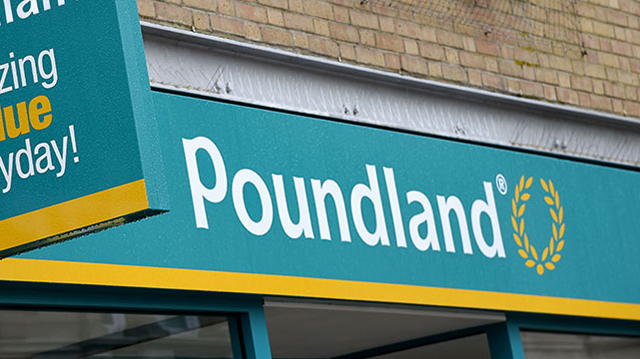With fewer deals being done within Europe, it is imperative to know where the next wave of investment from outside the Continent will come from.
Sovereign wealth funds, especially those in the Middle East, are gaining influence, but they have not actually completed many deals. They have bought some assets in Paris, for example, and the Investment Corporation of Dubai tried, but failed, to purchase Spanish company Colonial.
China is one country that is sitting on a lot of capital but so far it has done relatively few real estate deals. Its wealth fund, the China Investment Corporation (CIC), has $200bn (€127bn) assets under management, making it the sixth-largest sovereign wealth fund in the world, according to a recent report by Eurohypo. It has already made three high-profile equity deals: buying a $3bn stake in Blackstone, a $5bn stake in Morgan Stanley and a $100m stake in Visa. But so far the deals have not been happy ones: the share prices of these firms have fallen.
The country has yet to make its mark on the European real estate market. The majority of agents confess to having heard only rumours of Chinese interest. None of them said there was any dialogue between their European and Chinese offices about setting up business between them.
The impediments are here and in China. Even though the Chinese government has only recently opened up the country’s economy, and this year lifted some of the restrictions on the flow of capital out of its borders, the outward flow of funds is still not as fluid as that of sovereign wealth funds from other countries. Like the German funds before them, the money was not able leave the country and has been accumulating there as a result.
With a vibrant and expanding economy, China has generated sufficient rewards for domestic players not to be interested in taking their money abroad just yet. The Chinese also find it difficult to invest in the UK and Europe because they are not used to the business model here. The Chinese are reluctant to say who their backers are or where the money is coming from, and this often scuppers any potential deal in the less opaque European markets.
The Middle Eastern sovereign wealth funds have tackled the cultural issue recently by hiring European people to act as go-betweens. The Qatar Investment Authority appointed John Wallace, former header of RBS’s property team, to lead its UK operation. The Abu Dhabi Investment Authority hired Paul Kennedy, former head of European research at Invesco, last month. The Chinese will have to adopt a similar tactic in order to smooth business relations between China and Europe.
One rare example of Chinese interest in European real estate comes from Knight Frank, which courted a Chinese property investor but ultimately failed to close a deal. The investor, a company called the London China Business Quarter, was looking to rent a building complex in east London with a view to setting up a launch pad for Chinese business in the capital. Talks began in 2004, and the agent is still in dialogue with the company.
A deal in east London
“They wanted to rent our Building 1000,” says Chris Bell, head of Europe at Knight Frank. “They were offering what was effectively seven months’ rent in a deposit account, which was insufficient. They then said they were off to Barcelona but came back a year later. Same problem. We agreed terms on a short-term basis. That’s my direct experience, that’s why I’m sceptical about Chinese investment.”
The problem is two-fold. Cash-rich foreign investors such as the Chinese think that they can pick up a bargain in the credit crunch-hit UK and European markets, while the Europeans still believe the Chinese and others funds have so much money that they are willing to pay more than the current values. So the Chinese are disappointed, but more shrewd than the vendors believe, and nothing gets done. People are confident that Chinese money will eventually be spent in European property, however, once the domestic players there are ready to go abroad.
Another source of capital is Canada, a more traditional but similarly equity-driven market. Canadian funds have been investing in Europe for some time, but as the credit crunch continues, the Australians retreat and the Americans move on from Europe, they are a welcome arrival. Last month, for example, Canadian insurance company Canada Life bought the £146m (€182.6m) Galaxy portfolio from Legal & General, one of the only recent deals to go through in the difficult UK market.
Canadian money has a long history in the UK. Canada Place in Canary Wharf is so-called because of Canadian investment. Olympia & York, run by the Canadian Paul Reichmann and his brothers, invested heavily in the area until they went bust in the late 1980s. The Canadian market is similar to the Australian market in that it is relatively small on the world’s stage but has equity- rich players, so all the product has been snapped up. Canadians therefore need to look beyond their borders for their investments.
The Canadian dollar has weakened somewhat in the past six months but not nearly as badly as the US dollar. The Canadian dollar, which in the past has traded at a lower value than its neighbour’s currency, is now on a par with the US dollar. At the time EuroProperty went to press, $1 was worth C$0.99. Six months ago it was C$1.15.
Two Canadian pension funds have property arms that invest in Europe. The Ontario Municipal Employees Retirement System Fund has Oxford Properties, which has invested in the UK and Germany. Oxford is developing the UBS-owned Watermark Place in London, its first deal in the UK, and opening an office there at the end of this year. In 2005, it bought German residential company Deutsche Annington.
“We’ve looked at France, Spain, Italy and CEE, but it’s difficult to find the scale,” says Christopher Voutsinas, Oxford’s head of global investment. “Having a London office means we can manage smaller deals in Europe. Those markets look more attractive. The worse it gets there, the better it gets for us.”
The Ontario Teachers’ Pension Plan Board runs Cadillac Fairview, its property arm, which has been investing in the UK for some time. Last year it bought 50% of the Thomas More Square complex for £132m (€167m) from Land Securities.
“We have made great progress in expanding our international portfolio of assets, and have now reached the point at which holdings outside Canada represent about 10% of our total portfolio,” says Peter Sharpe, president of Cadillac Fairview. “And we expect foreign markets to eventually represent as much as 15-20%.
“London is one of our most important target markets. The UK is a transparent and highly liquid market, with strong legal and accounting systems. It’s very similar to Canada, which makes it ideal for the expansion plans of a Canadian-based company like ours.”
Extensive European coverage
The Canadian company with the most extensive European coverage is Ivanhoe Cambridge, which owns assets in seven countries. The company chases yields in emerging markets, so while western Europe remains a steady income source, Ivanhoe Cambridge has recently moved into Turkey and Russia.
“There will be Canadian money coming over because there is a lot of money in those funds,” says John Slade, head of Europe at DTZ, which bought Canada’s biggest agent, JJ Barnicke, last year. He adds: “We are over there talking to them directly.”










